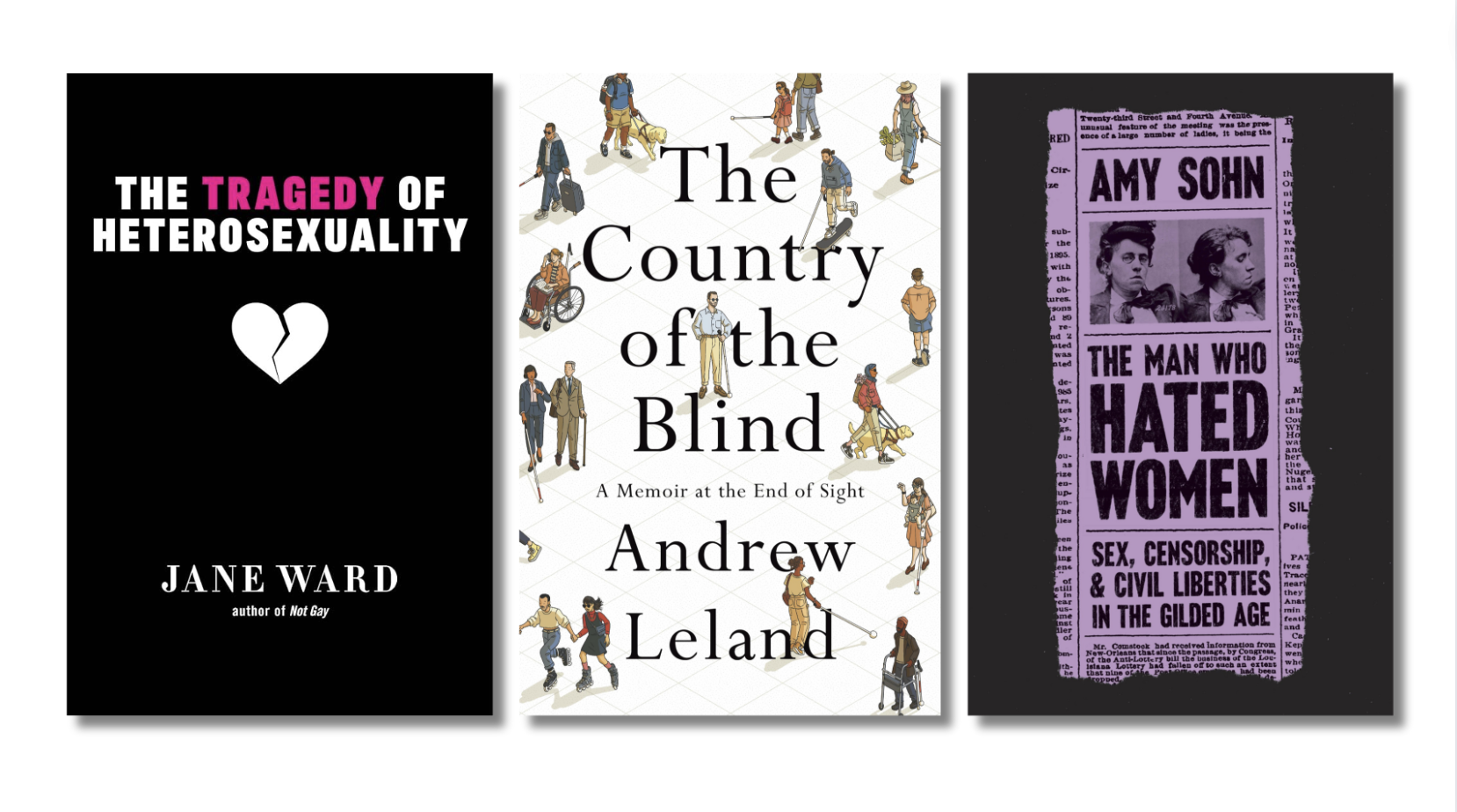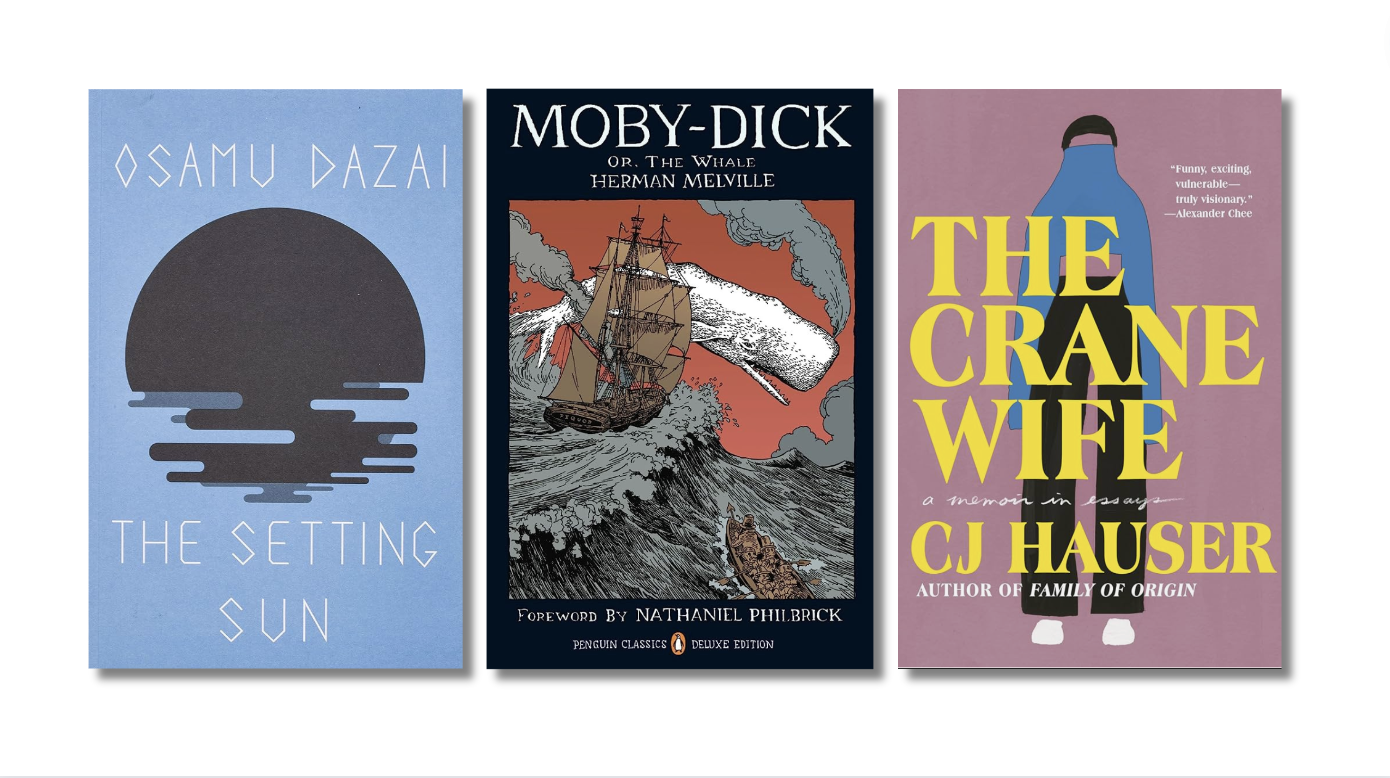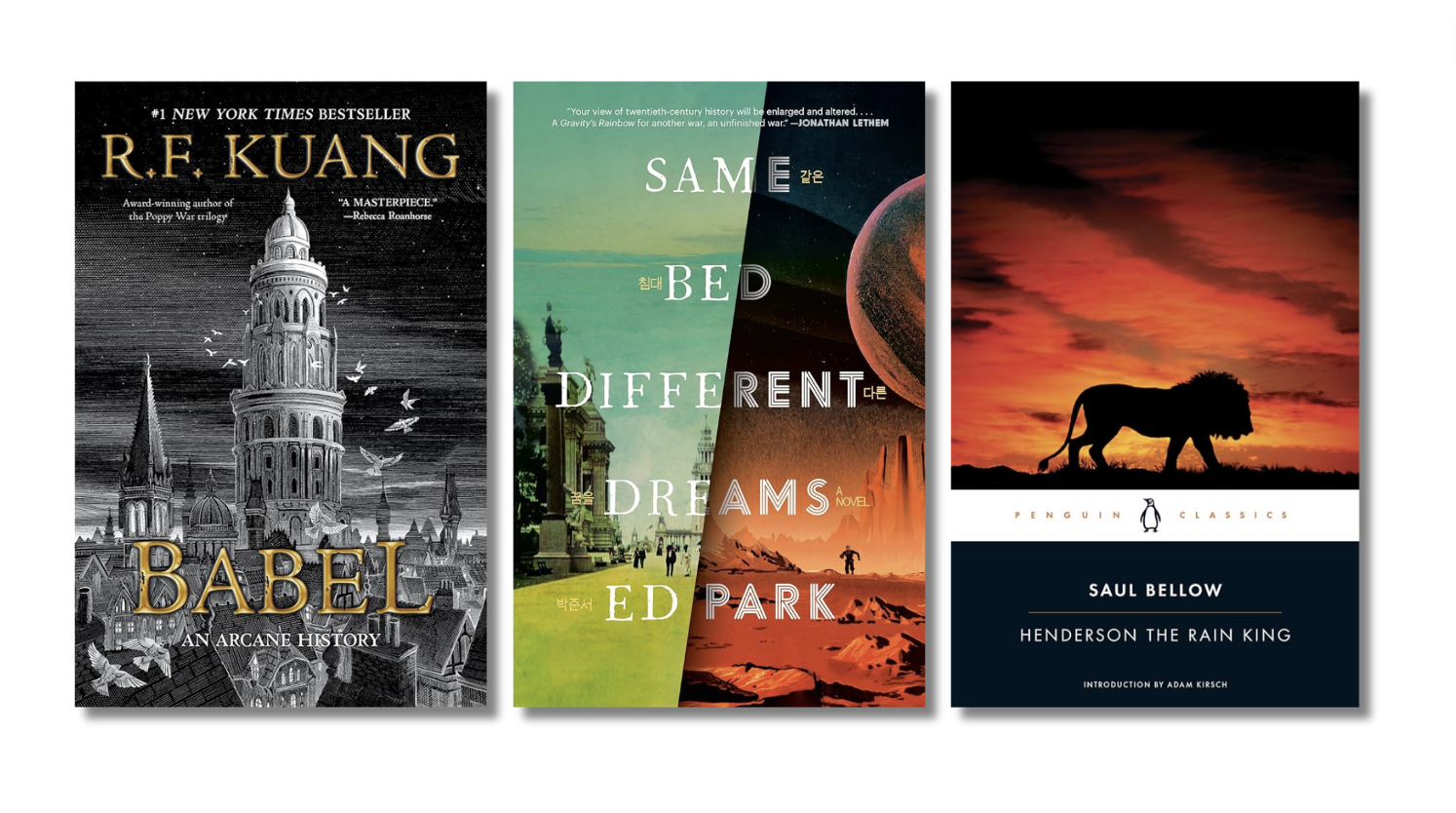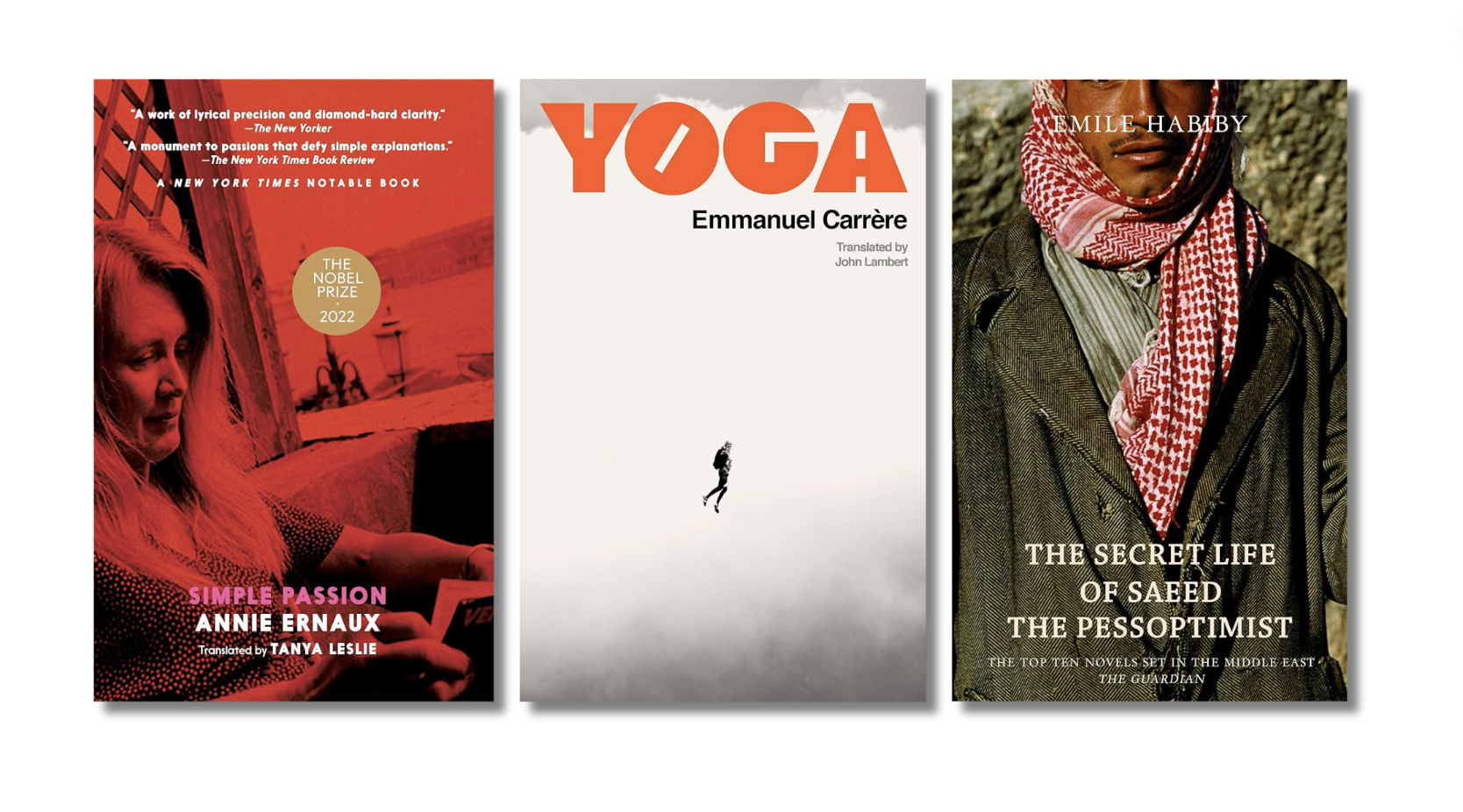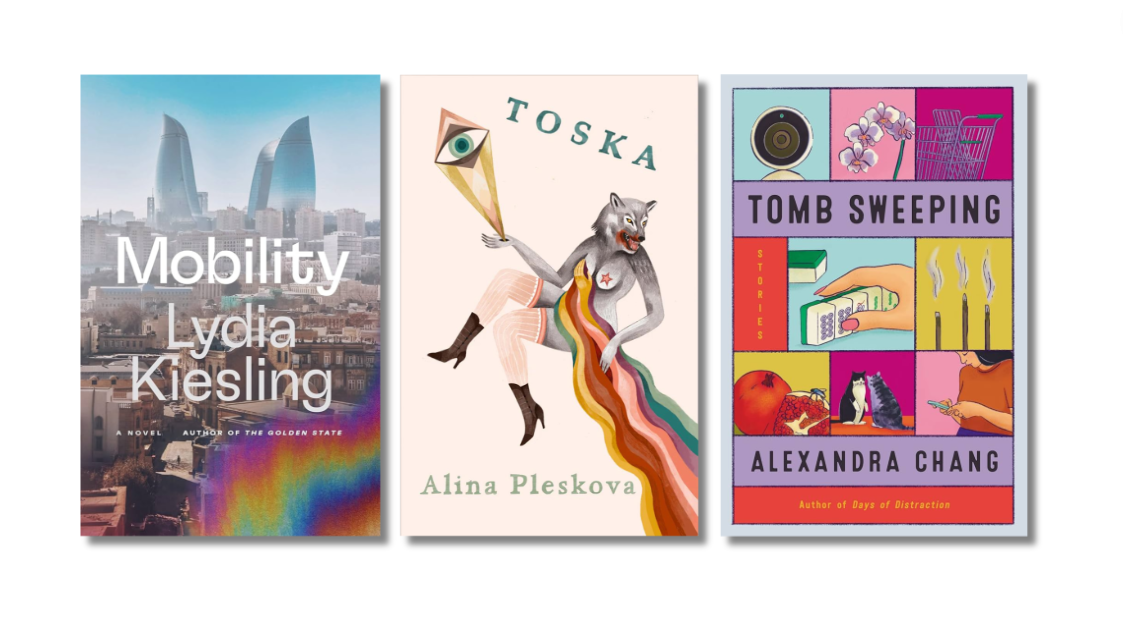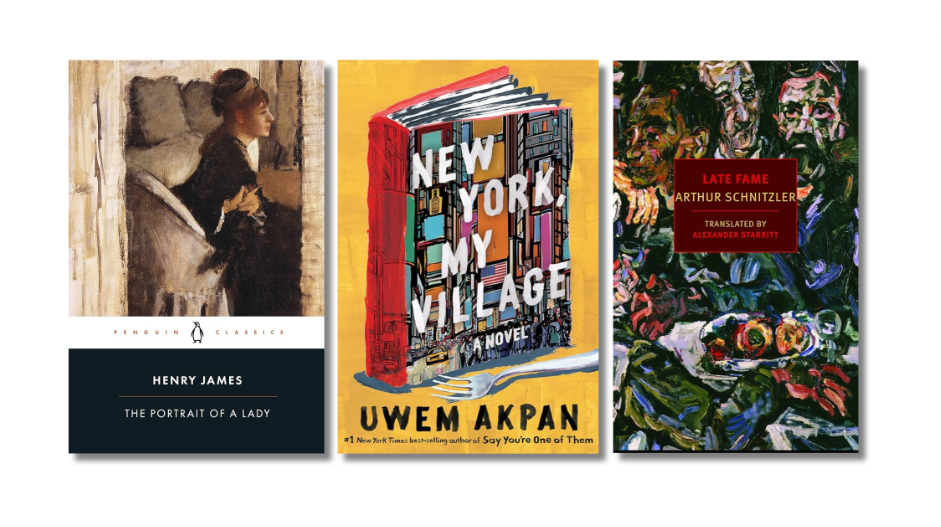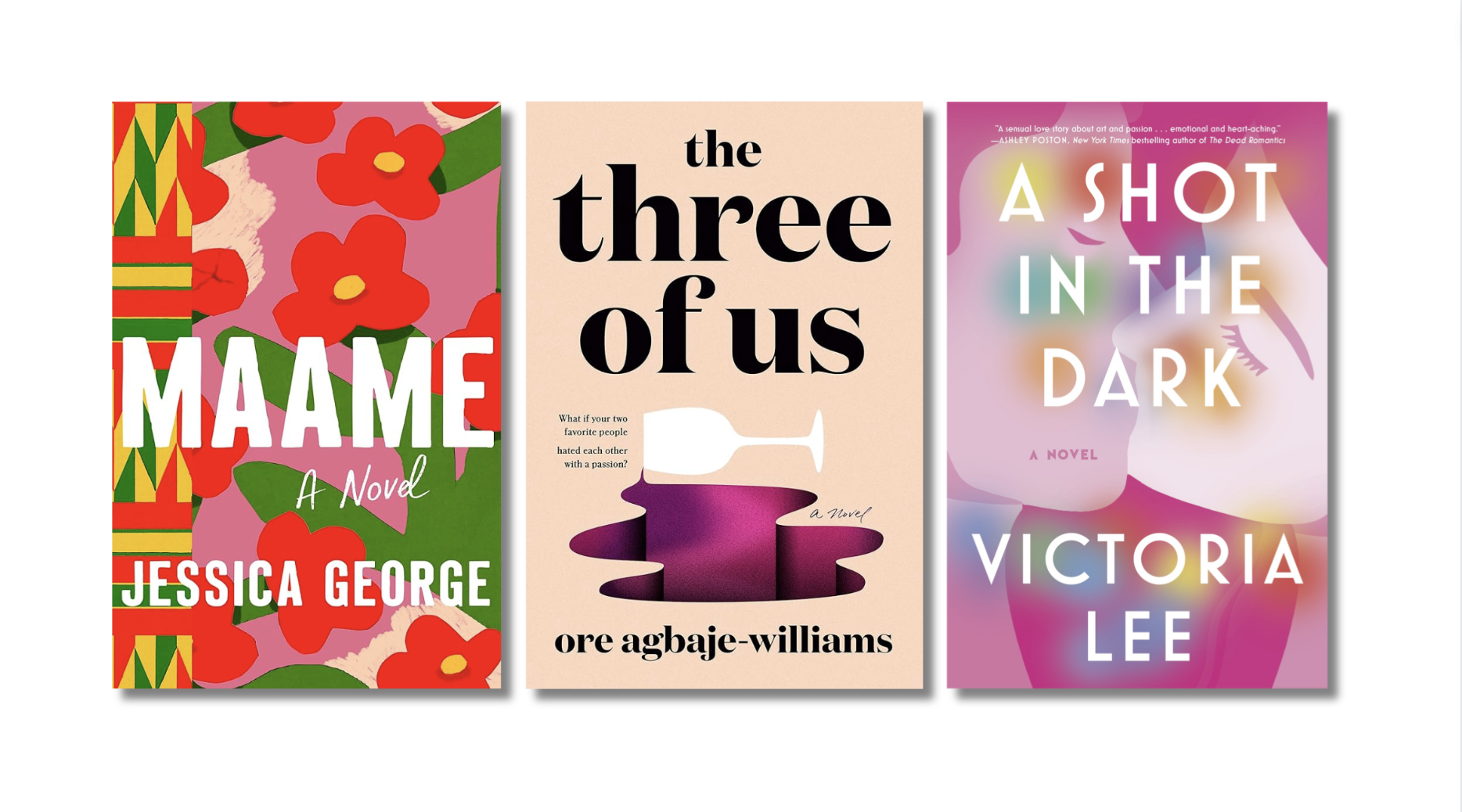

 As a translator, I write books I’ve also read, so in a way you’d have to say that the books at the center of my year in reading were the ones I started or finished translating: Thomas Mann, New Selected Stories; Victoria Kielland, My Men; Ariane Koch, Overstaying; Anna Stern, all this here, now.; Jon Fosse, A Shining and How It Was; Hermann Hesse, Siddhartha; Charlotte Beradt, The Third Reich of Dreams; Ludwig Wittgenstein, Tractatus Logico-Philosophicus; Uwe Johnson, Cresspahl’s Daughter: The Gesine Stories; Anne Bertrand, The Collected Writings of Walker Evans. Fosse won the Nobel Prize this year, and I started on a bunch of future translations of his early novels, children’s books, and poems, while waiting to see what kind of novel he’ll come up with next. But reading as a translator is different from just reading—this is on my mind because it’s the central argument of the one book I finished writing that isn’t a translation: The Philosophy of Translation, out next year—so I feel like the books I’ve read-as-a-translator don’t really count.
As a translator, I write books I’ve also read, so in a way you’d have to say that the books at the center of my year in reading were the ones I started or finished translating: Thomas Mann, New Selected Stories; Victoria Kielland, My Men; Ariane Koch, Overstaying; Anna Stern, all this here, now.; Jon Fosse, A Shining and How It Was; Hermann Hesse, Siddhartha; Charlotte Beradt, The Third Reich of Dreams; Ludwig Wittgenstein, Tractatus Logico-Philosophicus; Uwe Johnson, Cresspahl’s Daughter: The Gesine Stories; Anne Bertrand, The Collected Writings of Walker Evans. Fosse won the Nobel Prize this year, and I started on a bunch of future translations of his early novels, children’s books, and poems, while waiting to see what kind of novel he’ll come up with next. But reading as a translator is different from just reading—this is on my mind because it’s the central argument of the one book I finished writing that isn’t a translation: The Philosophy of Translation, out next year—so I feel like the books I’ve read-as-a-translator don’t really count.



 I also started a one-year academic position this fall, as a Distinguished Writer in Residence at Wesleyan, so I did professionalized reading of another kind in deciding what to put on my syllabi. I remembered the old-fashioned appreciation courses I took in college, which so enriched my life whether or not they were in art forms I went on to pursue later, and I wanted to give today’s students that same experience: a course without a particular ax to grind, without a theory or an argument, just assigning great books. I thought: Let me teach “The 21st Century Novel,” and I had read most of the ones I wanted to assign but so to speak reread them in my mind as I thought about how they might fit together, ending up with Rachel Cusk, Outline; Anna Burns, Milkman (the best contemporary novel I’ve read in 20 years); Joy Williams, Harrow; Yan Ge, Strange Beasts of China, tr. Jeremy Tiang; Marie NDiaye, Self-Portrait in Green, tr. Jordan Stump; Olga Tokarczuk, Drive Your Plow Over the Bones of the Dead, tr. Antonia Lloyd-Jones; Claudia Piñeiro, Elena Knows, tr. Frances Riddle; and my own forthcoming translation of Ariane Koch’s Overstaying. I had room for one more along with those eight, so I read some contemporary novels I’d missed—Gina Apostol’s The Revolution According to Raymundo Mata; Marie NDiaye’s Three Strong Women, tr. John Fletcher; Thuận’s Chinatown, tr. Nguyễn An Lý; Dorothy Tse’s Owlish, tr. Natascha Bruce—before settling on Catherine Lacey’s Biography of X. These nine novels are of course a partial list—obviously limited in one way, less obviously limited in many other ways—but as far as possible future canons of the novel go, I think it’s not a bad group. A few themes emerged, as they always do when one makes lists: fractured narrative voices and fractured personhood; blurring between human and nonhuman, or with humans categorized as inhuman in one way or another; impending environmental doom. I felt, in whatever vague way, that none of these books could have been written in the 20th century. The one book I belatedly read this year and absolutely would have included on the syllabus were it not too long was Lucy Ellmann’s Ducks, Newburyport: a hilarious, tremendous, utterly readable novel that fits all these themes and truly captures the precarious insanity of life in late-capitalist, MAGA-era America.
I also started a one-year academic position this fall, as a Distinguished Writer in Residence at Wesleyan, so I did professionalized reading of another kind in deciding what to put on my syllabi. I remembered the old-fashioned appreciation courses I took in college, which so enriched my life whether or not they were in art forms I went on to pursue later, and I wanted to give today’s students that same experience: a course without a particular ax to grind, without a theory or an argument, just assigning great books. I thought: Let me teach “The 21st Century Novel,” and I had read most of the ones I wanted to assign but so to speak reread them in my mind as I thought about how they might fit together, ending up with Rachel Cusk, Outline; Anna Burns, Milkman (the best contemporary novel I’ve read in 20 years); Joy Williams, Harrow; Yan Ge, Strange Beasts of China, tr. Jeremy Tiang; Marie NDiaye, Self-Portrait in Green, tr. Jordan Stump; Olga Tokarczuk, Drive Your Plow Over the Bones of the Dead, tr. Antonia Lloyd-Jones; Claudia Piñeiro, Elena Knows, tr. Frances Riddle; and my own forthcoming translation of Ariane Koch’s Overstaying. I had room for one more along with those eight, so I read some contemporary novels I’d missed—Gina Apostol’s The Revolution According to Raymundo Mata; Marie NDiaye’s Three Strong Women, tr. John Fletcher; Thuận’s Chinatown, tr. Nguyễn An Lý; Dorothy Tse’s Owlish, tr. Natascha Bruce—before settling on Catherine Lacey’s Biography of X. These nine novels are of course a partial list—obviously limited in one way, less obviously limited in many other ways—but as far as possible future canons of the novel go, I think it’s not a bad group. A few themes emerged, as they always do when one makes lists: fractured narrative voices and fractured personhood; blurring between human and nonhuman, or with humans categorized as inhuman in one way or another; impending environmental doom. I felt, in whatever vague way, that none of these books could have been written in the 20th century. The one book I belatedly read this year and absolutely would have included on the syllabus were it not too long was Lucy Ellmann’s Ducks, Newburyport: a hilarious, tremendous, utterly readable novel that fits all these themes and truly captures the precarious insanity of life in late-capitalist, MAGA-era America.



 For a “Contemporary Short Stories in Translation” course, there was far more than a ninth of the syllabus that I hadn’t read—apparently I haven’t been reading as many short stories as other genres in recent years. Along with stories I knew by Fosse, Sjón, Roberto Bolaño, Federico Falco, Yan Ge (cheating and using chapters from Strange Beasts of China as stories now), Bora Chung, Vimala, Tsering Döndrup, and two stories (cheating again) written in English about translation—Rónán Hession’s “The Translator’s Funeral” and Jennifer Croft’s “Anaheim”—I went looking for more to assign by plunging into Baboon by Naja Marie Aidt, tr. Denise Newman; Ashes in My Mouth, Sand in My Shoes by Per Petterson, tr. Don Bartlett; Seven Empty Houses by Samanta Schweblin, tr. Megan McDowell; This Is Not Miami by Fernanda Melchor, tr. Sophie Hughes; Blue Light in the Sky and Other Stories by Can Xue, tr. Karen Gernant and Zeping Chen; It’s Getting Dark by Peter Stamm, tr. Michael Hofmann; All My Friends by NDiaye again, tr. Jordan Stump; Night Train by A. J. Snijders, tr. Lydia Davis; Roman Stories by and translated by Jhumpa Lahiri; Happy Stories, Mostly by Norman Erikson Pasaribu, tr. Tiffany Tsao; and No Edges: Swahili Stories. The course will be not only about the fiction itself, but about common threads within certain geographical clusters (Nordic Europe, Latin America, East Asia, Western Europe) as well as about how American (English) publishing frames and presents stories differently depending on whether they are from one of those places or “none of the above.” Making the course about how the publishing industry presents translated work to relatively well-informed general readers, e.g. me, turns a limitation (knowing only what I happen to know about) into a virtue (a test case to explore why I’ve heard about what I’ve heard about). Or at least so I tell myself.
For a “Contemporary Short Stories in Translation” course, there was far more than a ninth of the syllabus that I hadn’t read—apparently I haven’t been reading as many short stories as other genres in recent years. Along with stories I knew by Fosse, Sjón, Roberto Bolaño, Federico Falco, Yan Ge (cheating and using chapters from Strange Beasts of China as stories now), Bora Chung, Vimala, Tsering Döndrup, and two stories (cheating again) written in English about translation—Rónán Hession’s “The Translator’s Funeral” and Jennifer Croft’s “Anaheim”—I went looking for more to assign by plunging into Baboon by Naja Marie Aidt, tr. Denise Newman; Ashes in My Mouth, Sand in My Shoes by Per Petterson, tr. Don Bartlett; Seven Empty Houses by Samanta Schweblin, tr. Megan McDowell; This Is Not Miami by Fernanda Melchor, tr. Sophie Hughes; Blue Light in the Sky and Other Stories by Can Xue, tr. Karen Gernant and Zeping Chen; It’s Getting Dark by Peter Stamm, tr. Michael Hofmann; All My Friends by NDiaye again, tr. Jordan Stump; Night Train by A. J. Snijders, tr. Lydia Davis; Roman Stories by and translated by Jhumpa Lahiri; Happy Stories, Mostly by Norman Erikson Pasaribu, tr. Tiffany Tsao; and No Edges: Swahili Stories. The course will be not only about the fiction itself, but about common threads within certain geographical clusters (Nordic Europe, Latin America, East Asia, Western Europe) as well as about how American (English) publishing frames and presents stories differently depending on whether they are from one of those places or “none of the above.” Making the course about how the publishing industry presents translated work to relatively well-informed general readers, e.g. me, turns a limitation (knowing only what I happen to know about) into a virtue (a test case to explore why I’ve heard about what I’ve heard about). Or at least so I tell myself.



 And then there was the glorious, free, unprofessionalized reading for pleasure. I read a few memorable novels, including Orhan Pamuk’s Nights of Plague, tr. Ekin Oklap, written in the unexpectedly magnificent genre of a novel written to pretend to be a long boring history book (which I loved, because I love long boring history books). A book as micro as Pamuk’s is macro, Louise Glück’s Marigold and Rose, somehow joins Richard Hughes’s A High Wind in Jamaica at the pinnacle of novels about childhood. Also short, but not that short, were Mark Haber’s two neo-Bernhardian fugues, Reinhardt’s Garden and St. Sebastian’s Abyss, which I’d had for a while but found myself devouring this year. The advice to start with Abyss, written in bite-sized little chapters instead of one long paragraph, was the way to go for me. I had another blast with Bae Myung-hoon’s Launch Something! tr. Stella Kim, even more fun and tightly plotted than his earlier, also excellent The Tower.
And then there was the glorious, free, unprofessionalized reading for pleasure. I read a few memorable novels, including Orhan Pamuk’s Nights of Plague, tr. Ekin Oklap, written in the unexpectedly magnificent genre of a novel written to pretend to be a long boring history book (which I loved, because I love long boring history books). A book as micro as Pamuk’s is macro, Louise Glück’s Marigold and Rose, somehow joins Richard Hughes’s A High Wind in Jamaica at the pinnacle of novels about childhood. Also short, but not that short, were Mark Haber’s two neo-Bernhardian fugues, Reinhardt’s Garden and St. Sebastian’s Abyss, which I’d had for a while but found myself devouring this year. The advice to start with Abyss, written in bite-sized little chapters instead of one long paragraph, was the way to go for me. I had another blast with Bae Myung-hoon’s Launch Something! tr. Stella Kim, even more fun and tightly plotted than his earlier, also excellent The Tower.
 The translation of the year for me was Katrina Dodson’s of Mário de Andrade’s Macunaíma, a brilliant, creative re-creation and creation and recreation, full of radical translation decisions and countless superb less radical ones too. I was infuriated enough by the review in The New York Review of Books to write a letter to the editor, but they didn’t publish it: the reviewer acknowledges the book is a translation, even that the original must have been hard to translate, but then pats Dodson on the head and says she “acquits herself commendably here.” How dare he!? Dodson wasn’t doing homework—an assigned task, an end-of-semester course requirement before which she is culpable until proven acquitted, in exchange for teacherly commendation—she was crafting an English book of genius under her own creative power. The New York Review of Books wouldn’t publish a review of a novel that said “B+” and moved on; I am disappointed that they still allow translation to be treated in their pages as classwork. (Full disclosure: I have never met Dodson, have never communicated with her directly as far as I know, and have never competed with her for work or overlapped with her in consideration for any jobs, fellowships, awards, or other professional advancement. I say this with no conflict of interest whatsoever, sheerly as an appreciative reader.)
The translation of the year for me was Katrina Dodson’s of Mário de Andrade’s Macunaíma, a brilliant, creative re-creation and creation and recreation, full of radical translation decisions and countless superb less radical ones too. I was infuriated enough by the review in The New York Review of Books to write a letter to the editor, but they didn’t publish it: the reviewer acknowledges the book is a translation, even that the original must have been hard to translate, but then pats Dodson on the head and says she “acquits herself commendably here.” How dare he!? Dodson wasn’t doing homework—an assigned task, an end-of-semester course requirement before which she is culpable until proven acquitted, in exchange for teacherly commendation—she was crafting an English book of genius under her own creative power. The New York Review of Books wouldn’t publish a review of a novel that said “B+” and moved on; I am disappointed that they still allow translation to be treated in their pages as classwork. (Full disclosure: I have never met Dodson, have never communicated with her directly as far as I know, and have never competed with her for work or overlapped with her in consideration for any jobs, fellowships, awards, or other professional advancement. I say this with no conflict of interest whatsoever, sheerly as an appreciative reader.)
But mostly, in these deadly, painful, unhappy times, I read poetry.
We couldn’t get inspired to keep our house in order this year
The house was a mess and we went to bed too late to fix it up
We’d lost our old way of thinking where we knew what to do next…



 Wow, really nailing it, Bernadette Mayer! I see myself in this picture and I don’t like it! These lines are from Milkweed Smithereens, which I finally read this year along with Midwinter Day and Sonnets, finding myself on a bit of a semi-autobiographical second-generation-New-York-School kick with Ted Berrigan’s Get the Money! and Alice Notley’s Mysteries of Small Houses, plus later (third-generation? fourth-generation?) books like Anselm Berrigan’s Something for Everybody and Garrett Caples’s Lovers of Today. From the West Coast, there were Joanne Kyger’s There You Are and As Ever and Philip Whalen’s recently reissued classic Scenes of Life at the Capital.
Wow, really nailing it, Bernadette Mayer! I see myself in this picture and I don’t like it! These lines are from Milkweed Smithereens, which I finally read this year along with Midwinter Day and Sonnets, finding myself on a bit of a semi-autobiographical second-generation-New-York-School kick with Ted Berrigan’s Get the Money! and Alice Notley’s Mysteries of Small Houses, plus later (third-generation? fourth-generation?) books like Anselm Berrigan’s Something for Everybody and Garrett Caples’s Lovers of Today. From the West Coast, there were Joanne Kyger’s There You Are and As Ever and Philip Whalen’s recently reissued classic Scenes of Life at the Capital.




 W. S. Merwin’s The Vixen accomplished the task I had thought impossible of dethroning The Shadow of Sirius as my favorite in his vast body of work (unless you count his translation of Dante’s Purgatorio). I read a few real oldies—Chaucer’s Troilus and Criseyde for the first time, much more modern than I expected, a real kankedort; Ovid’s Poems of Exile, tr. Peter Green, now that I know that Tomis is another name for Minneapolis. Great new translations from World Poetry Books were discoveries for me: Jacques Darras’s John Scotus Eriugena at Laon & Other Poems, in a vigorous, singing translation by the great Richard Sieburth; Ardengo Soffici’s Simultaneities & Lyric Chemisms rediscovered and beautifully translated by Olivia E. Sears (and designed with great Franco-Italian Futurist typography, despite the sad decision to replace the original title, BÏF§ZF+18, but, well, search engines). Ugly Duckling Presse remains an indispensable source for what’s happening now: I especially appreciated Nicole Cecilia Delgado’s Adjacent Islands, tr. Urayoán Noel; tatiana nascimento’s Lunduzinho, tr. Natália Affonso; Sabrina Ramos Rubén’s Song of the Absent Brook, tr. S. Yates Gibson; and Eleonora Requena’s Outside Texts, tr. Guillermo Parra. I was glad to see a new book at long last by old favorite David Larsen, Zeroes Were Hollow, coming 18 years after The Thorn and more than a dozen after his masterful translations of The Names of the Lion, and I was shocked to realize that Brent Cunningham’s latest, Journey to the Sun, which I’d been meaning to read, was over a decade old already: luckily, it seems to have remained as batshit-Mayakovskian as ever.
W. S. Merwin’s The Vixen accomplished the task I had thought impossible of dethroning The Shadow of Sirius as my favorite in his vast body of work (unless you count his translation of Dante’s Purgatorio). I read a few real oldies—Chaucer’s Troilus and Criseyde for the first time, much more modern than I expected, a real kankedort; Ovid’s Poems of Exile, tr. Peter Green, now that I know that Tomis is another name for Minneapolis. Great new translations from World Poetry Books were discoveries for me: Jacques Darras’s John Scotus Eriugena at Laon & Other Poems, in a vigorous, singing translation by the great Richard Sieburth; Ardengo Soffici’s Simultaneities & Lyric Chemisms rediscovered and beautifully translated by Olivia E. Sears (and designed with great Franco-Italian Futurist typography, despite the sad decision to replace the original title, BÏF§ZF+18, but, well, search engines). Ugly Duckling Presse remains an indispensable source for what’s happening now: I especially appreciated Nicole Cecilia Delgado’s Adjacent Islands, tr. Urayoán Noel; tatiana nascimento’s Lunduzinho, tr. Natália Affonso; Sabrina Ramos Rubén’s Song of the Absent Brook, tr. S. Yates Gibson; and Eleonora Requena’s Outside Texts, tr. Guillermo Parra. I was glad to see a new book at long last by old favorite David Larsen, Zeroes Were Hollow, coming 18 years after The Thorn and more than a dozen after his masterful translations of The Names of the Lion, and I was shocked to realize that Brent Cunningham’s latest, Journey to the Sun, which I’d been meaning to read, was over a decade old already: luckily, it seems to have remained as batshit-Mayakovskian as ever.
In one of Jon Fosse’s many kind and consoling emails to me over the years, he told me about some of his own past personal troubles and said that literature, especially translating, had helped him get through such situations. Not only the communion of reading but the community with other readers—sometimes more distant, sometimes less—has certainly been one of my greatest comforts this year.
More from A Year in Reading 2023
A Year in Reading Archives: 2022, 2021, 2020, 2019, 2018, 2017, 2016, 2015, 2014, 2013, 2012, 2011, 2010, 2009, 2008, 2007, 2006, 2005















